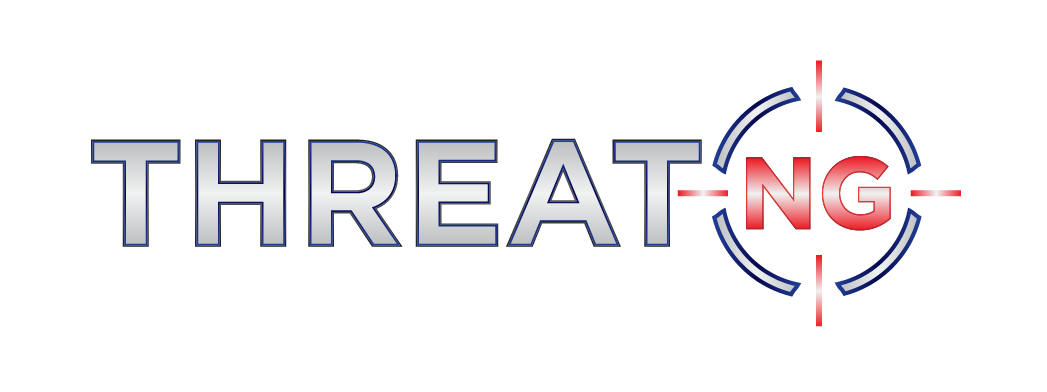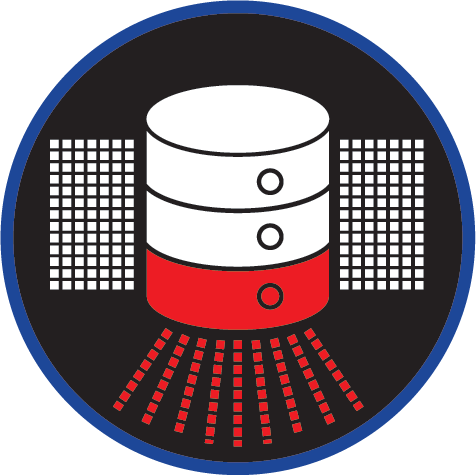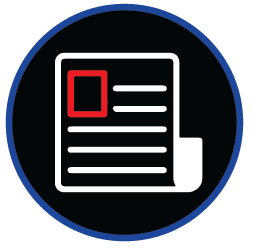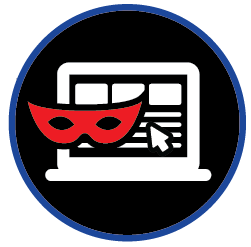
Data Leak Susceptibility
ThreatNG Score Uncovers Hidden Data Leak Risks Across Your Digital Ecosystem
The ThreatNG Data Leak Susceptibility Score is not just a reactive measure but a proactive solution that goes beyond traditional data loss prevention. It harnesses the power of ThreatNG's robust security suite, including External Attack Surface Management (EASM), Digital Risk Protection (DRP), and expansive intelligence sources. This comprehensive approach assesses not just your organization but also your third-party vendors and your entire supply chain. By analyzing Cloud and SaaS Exposure (including sanctioned, unsanctioned, and impersonated services, as well as open cloud buckets), Compromised Credentials, Sentiment and Financials (specifically SEC Form 8-K filings), and Vulnerabilities, the ThreatNG score pinpoints potential data leak weaknesses before they become significant breaches. This proactive approach empowers businesses to identify and address hidden vulnerabilities, achieving optimal data security outcomes across their digital ecosystem."
ThreatNG Data Leak Susceptibility Score: Severity Levels Explained
The ThreatNG Data Leak Susceptibility Score utilizes a letter grading system (A-F) to communicate the severity of your organization's vulnerability to data leaks. This grading system aligns with the ThreatNG Digital Presence Triad, providing a clear picture of the risk based on three key factors:
Feasibility
This assesses how easy it would be for attackers to exploit weaknesses and cause a data leak. Grade A indicates a highly secure environment with robust data security measures, limited cloud storage exposure, and minimal presence of sensitive data on the dark web. Conversely, Grade F signifies a vulnerable environment with weak access controls, extensive cloud storage usage without proper configuration, and a high likelihood of sensitive data appearing on the dark web.
Believability
This evaluates the likelihood of attackers targeting your organization or its third parties to steal data. A low score (A) suggests a low chance of being targeted, often due to strong data security practices and limited storage of valuable data. A high score (F) indicates a high likelihood of being targeted due to the type of data you store (e.g., financial information, intellectual property), the industries you operate in (e.g., healthcare, finance), or a history of past data breaches.
Impact
This considers the potential consequences of a successful data leak. Grade A signifies minimal potential damage, such as a leak of non-sensitive data with minimal financial or reputational impact. Grade F indicates a scenario with severe consequences, such as a large-scale breach of sensitive data (e.g., customer records, financial information) leading to economic losses, regulatory fines, reputational damage, and even identity theft for affected individuals.
How the Grades Translate to Severity
A (Low Severity)
Your organization has strong data security measures, a low attacker interest, and minimal potential impact if a data leak occurs
B (Moderate Severity)
While your organization might have weaknesses in data security or cloud storage configurations, attacker interest is still considered low, or the potential impact is manageable.
C (Medium Severity)
This indicates a balance between the ease of exploiting vulnerabilities (Feasibility), the likelihood of being targeted (Believability), and the potential consequences (Impact). Remediating these moderate risks is recommended to strengthen your data security posture.
D (High Severity)
Your organization shows vulnerabilities in data security or cloud storage configurations that could be exploited with moderate attacker interest or could lead to significant consequences if a data leak occurs. Urgent action is needed to address these vulnerabilities and implement more robust data security measures.
F (Critical Severity)
This signifies the highest risk scenario. Your organization has critical weaknesses in data security and cloud storage configurations, is highly likely to be targeted by attackers, and could suffer severe consequences if a data leak occurs. Immediate remediation is crucial to prevent attackers from exploiting these vulnerabilities.
The ThreatNG Advantage
Considering all three factors (Feasibility, Believability, and Impact), the ThreatNG score provides more than a simple data security audit. It offers practical benefits, prioritizing data leak risks based on real-world scenarios. This allows you to focus resources on the areas with the most significant potential for data exposure. This focus on the Digital Presence Triad helps organizations achieve optimal data security outcomes by first addressing the most critical data leak vulnerabilities.

Unveiling Data Leak Risks: Proactive Insights with ThreatNG
Data breaches are a constant threat, and traditional security solutions often have blind spots. This is where ThreatNG comes in. It doesn't replace your existing security measures; it enhances them. The ThreatNG Data Leak Susceptibility Score breaks the mold by offering a wealth of actionable insights fueled by a powerful combination of data and intelligence. It empowers organizations to manage data security risks and prevent costly breaches proactively. Here's how ThreatNG delivers superior value:
Actionable Insights and Data-Driven Objectivity
ThreatNG goes beyond simply identifying potential data leaks. The score analyzes your organization, third-party vendors, and the supply chain by leveraging External Attack Surface Management (EASM) and Digital Risk Protection (DRP) capabilities. This comprehensive view, bolstered by vast intelligence repositories, paints an objective picture of your data leak susceptibility. With this data-driven approach, you gain actionable insights that pinpoint specific weaknesses in Cloud and SaaS Exposure (including sanctioned, unsanctioned, and impersonated services, as well as open cloud buckets), Compromised Credentials, Sentiment and Financials (specifically SEC Form 8-K filings), and Vulnerabilities. This lets you prioritize remediation efforts and make informed decisions to strengthen your data security posture.
Continuous Monitoring and Improvement
ThreatNG isn't a one-time assessment. Its continuous monitoring capabilities provide ongoing insights into your data security posture. This allows you to track progress on addressing vulnerabilities, identify new data exposure risks as they emerge, and measure the effectiveness of your data security measures over time. It empowers a proactive security approach, enabling you to continuously adapt and improve your cloud security practices and employee training programs to safeguard your valuable data.
Comparison and Benchmarking
The ThreatNG score allows for comparison and benchmarking against industry standards or your historical data. This comparative analysis helps you understand how your data leak susceptibility stacks up against competitors and measures the effectiveness of your data security efforts over time.
Actionable Recommendations
The score doesn't just highlight problems; it provides clear, actionable recommendations for addressing data leak vulnerabilities. These recommendations are tailored to the specific details of your data security posture, cloud storage configurations, and dark web presence. It empowers you to prioritize resources and focus on the areas that will significantly reduce your susceptibility to data leaks.
Transparency Through External Validation
ThreatNG's scoring system is clear and transparent. Because it is substantiated by the results of EASM, DRP, and extensive intelligence repositories, including Cloud and SaaS Exposure analysis, Dark Web Presence investigations, and Domain Intelligence, the score verifies and objectively assesses your data leak susceptibility. This transparency fosters trust and empowers stakeholders to confidently make informed decisions to safeguard your organization's data and prevent costly breaches.

Unveiling Your Organization's Weaknesses: A Spectrum of ThreatNG Security Ratings
The ThreatNG Data Leak Susceptibility Score is a powerful tool, but it's just one piece of the puzzle within ThreatNG's comprehensive digital risk assessment suite. While this specific score hones in on the vulnerability of data breaches, ThreatNG offers a broader range of Susceptibility and Exposure ratings that paint a holistic picture of your organization's digital security posture, third-party vendors, and entire supply chain.
Here's why a comprehensive approach matters:
Interconnected Threats
Security vulnerabilities in one area can have cascading effects across your digital ecosystem. A compromised third-party vendor, for instance, could expose your data or become a launchpad for other attacks. ThreatNG's suite of ratings helps you identify and address these interconnected threats.
Prioritized Action
You gain a prioritized view of your security risks by assessing various vulnerabilities. It allows you to focus resources on the areas with the most significant potential impact, maximizing your security investments.
Supply Chain Security
Today's businesses rely on complex supply chains. ThreatNG's assessments extend beyond your organization, providing visibility into the security posture of your vendors and partners and creating a more secure digital ecosystem.
ThreatNG's Spectrum of Security Ratings:
BEC & Phishing Susceptibility
Assesses the risk of falling victim to Business Email Compromise and phishing attacks.
Subdomain Takeover Susceptibility
Identifies weaknesses in subdomain configurations that could allow attackers to take control.
Mobile App Exposure
Assesses the risk of sensitive data leaks by identifying exposed credentials, API keys, and other vulnerabilities within mobile apps that could lead to unauthorized access and data exfiltration.
Brand Damage Susceptibility
Evaluate the likelihood of negative brand impacts due to security incidents, financial violations, or social responsibility concerns.
Breach & Ransomware Susceptibility
Assesses the likelihood of falling victim to ransomware attacks, considering exposed ports, known vulnerabilities, and dark web presence
Cyber Risk Exposure
This section provides a broad view of external attack surface vulnerabilities, encompassing the technology stack, cloud environments, and code exposure.
ESG Exposure
Evaluate the organization's environmental, social, and governance practices to identify potential security risks.
Supply Chain & Third Party Exposure
Analyzes the security posture of your vendors and partners, highlighting potential vulnerabilities within your supply chain.
Web Application Hijacking Susceptibility
Analyzes web applications for vulnerabilities attackers could exploit.
Security for Everyone: Proactive Threat Management
ThreatNG empowers organizations of all sizes, third-party vendors, and supply chain partners to assess and mitigate digital risks proactively. This collective effort creates a more secure digital ecosystem for everyone.
By leveraging ThreatNG's comprehensive suite of Susceptibility and Exposure ratings, you can clearly understand your vulnerabilities and their potential impact on your organization. This empowers you to make informed decisions, prioritize resources, and implement adequate security measures to safeguard your valuable assets across your digital landscape.
Data Leak Susceptibility Score Frequently Asked Questions (FAQs)
-
The ThreatNG Data Leak Susceptibility Score is a proactive security assessment that evaluates an organization's vulnerability to data leaks. It's important because it goes beyond traditional data loss prevention methods to identify potential weaknesses before they can be exploited. Organizations can prioritize and improve their data security by providing a clear understanding of data leak risks.
-
The ThreatNG score assesses several key areas to provide a comprehensive evaluation:
Cloud and SaaS Exposure: This includes analysis of sanctioned and unsanctioned cloud services, cloud service impersonations, and open cloud buckets.
Compromised Credentials: The score considers the presence of compromised credentials, which can be a significant entry point for attackers.
Sentiment and Financials: Specifically, the analysis of SEC Form 8-K filings provides insights into potential financial and operational risks that could be related to data breaches.
Vulnerabilities: The assessment includes the examination of vulnerabilities that could be exploited to access and exfiltrate data.
-
ThreatNG's approach is different because it provides a comprehensive view by combining External Attack Surface Management (EASM) and Digital Risk Protection (DRP). It emphasizes a purely external, unauthenticated discovery and assessment, meaning it doesn't require internal connectors. This external view allows for the identification of vulnerabilities that might be missed by internal-focused solutions. ThreatNG also looks at the risk beyond just the organization itself and includes third parties and the supply chain.
-
ThreatNG's Data Leak Susceptibility Score differentiates itself from other EASM, DRP, and security ratings solutions by:
Comprehensive Integration: It seamlessly integrates EASM and DRP capabilities with security ratings to provide a holistic view of data leak risks.
Focus on the Digital Presence Triad: It assesses risk based on Feasibility, Believability, and Impact, offering a more nuanced understanding of vulnerability.
Actionable Insights: It delivers clear, actionable recommendations for remediation, enabling organizations to prioritize their security efforts effectively.
Continuous Monitoring: It provides ongoing monitoring and tracking of data security posture, allowing for continuous improvement and adaptation.
Transparency: The scoring system is transparent and substantiated by data from EASM, DRP, and intelligence repositories.
-
This score helps with various use cases, including:
Proactive Risk Management: Identifying and addressing potential data leak weaknesses before they lead to breaches.
Third-Party Risk Assessment: Evaluating the security posture of vendors and the supply chain to mitigate external risks.
Compliance and Regulation: Meeting data protection compliance requirements by demonstrating proactive security measures.
Security Posture Improvement: Guiding security investments and improvements with data-driven insights and actionable recommendations.
-
The ThreatNG Data Leak Susceptibility Score is essential for:
Security Teams: To gain actionable intelligence and prioritize remediation efforts.
Risk Management Professionals: To assess and mitigate data leak risks across the organization and its ecosystem.
Executives: To understand the organization's data security posture and make informed decisions about security investments.
Any organization that handles sensitive data: Especially those in industries like healthcare, finance, and technology, where data breaches can have severe consequences.
It is essential because it provides a proactive, comprehensive, and actionable approach to managing and mitigating the ever-present threat of data leaks.

Security Ratings Use Cases
ThreatNG is a security rating platform enabling businesses to evaluate and monitor their security posture and that of their third-party vendors. By leveraging our extensive security information database, ThreatNG provides valuable insights into potential vulnerabilities and risk exposure, enabling organizations to take proactive measures to strengthen their security defenses. This section will explore some use cases where ThreatNG's security ratings can help organizations better understand their security posture and mitigate risk.



























